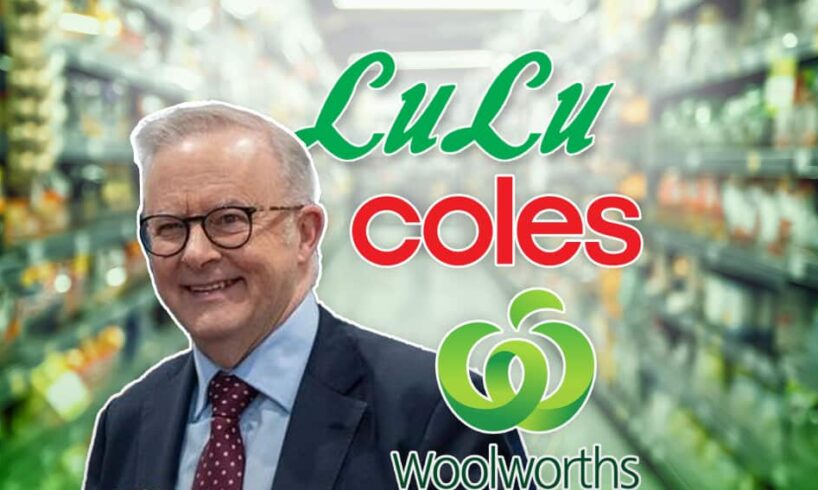
For the prime minister to successfully bring down grocery bills, economists say it will take more than extending an invitation for a United Arab Emirates supermarket giant to set up shop in Australia.Prime Minister Anthony Albanese stopped by Lulu Hypermarket in Abu Dhabi on Monday night, one of the largest retailers in the Middle East, and invited it to expand its business in Australia.”We know that Aldi, of course, has come to Australia, but this is a significant player that has an engagement with Australia and I want to see that competition,” Albanese said.Greg Jericho, chief economist at the left-leaning Australia Institute think tank, said more competition for Woolworths and Coles would be a win for Australian shoppers, but that a new chain would need extra support to break up the duopoly and ultimately, drive down prices.
Pointing to Aldi as an example, he told SBS News that the German discount chain initially helped bring down prices 20 years ago, before everyone “settled into a cosy arrangement”.
Jericho said there are some levers for the government to pull if it wants to take a serious approach to a new competitor and lower grocery bills.Bree Hurst, deputy director of Queensland University of Technology’s Centre for Decent Work and Industry, said current market imbalances have created a food system designed for overproduction and oversupply.She said while new players may reduce the duopoly between Woolworths and Coles, it’s “no quick fix or silver bullet” for driving down prices.
“What we really need is to look closely at our entire food system,” she told SBS News.
Is there space for a new supermarket?
In March, the Australian Competition and Consumer Commission (ACCC) released its final report after a year-long supermarket inquiry, finding the dominance of Woolworths and Coles had an “oligopolistic” effect on the broader industry.Despite setting up shop in 2001, two decades on, Aldi only holds 9 per cent of the market, in comparison to Woolworths at 38 per cent or Coles at 29 per cent.The ACCC said there was a “limited incentive” for the supermarket giants to compete on price due to their market dominance and acknowledged there are “significant barriers” for new or smaller supermarkets to enter.
Jericho said for a new player to be effective in bringing down prices, they will need to acquire sites in locations that make a difference.
Prime Minister Anthony Albanese welcomed competition for giants Coles and Woolworths, in hopes of lowering prices for consumers. Source: Supplied / PMO
“There’s only a limited number of places where a supermarket can set up, and so even with, for example, Lulu coming in, there needs to be regulations in place to ensure that they actually can get a foothold in the market,” Jericho said.”Because this is a problem in a lot of places, especially in small country towns, there’s only one player in the entire town.”
The ACCC inquiry found that since 2019, the two supermarket giants have acquired approximately 260 sites between them, which include land and shopping centres, making it difficult for smaller stores to compete.
Supermarket breakup key to lower prices, Greens say
Greens senator Nick McKim agrees the supermarket sector needs more competition but argues Albanese is going about the challenge “the wrong way”.”The prime minister needs to stop protecting the supermarket corporations and start going into bat for Australian shoppers,” he told SBS News.”And the way to do that is to introduce divestiture powers that would allow for the supermarket to be broken up, and that would create the preconditions for more competition in the supermarket sector and lower food and grocery prices.”
He said foreign supermarket corporations have been “dissuaded and ultimately decided not to come here” in the past due to the power of the duopoly in the country.
McKim acknowledged introducing legislation to make price gouging by supermarkets illegal, a Labor election promise, was a “step forward”.Jericho suggests creating a price commission which would give the ACCC the ability to scrutinise how much supermarkets charge and, in turn, the power to affect prices.He said while the ACCC can currently assess whether major players are colluding, it’s not allowed to examine how they set prices, unless it suspects illegal activity.”They would actually have powers to go in and say to the supermarkets, show me your books,” he said.
“Justify your profit margins, justify why you are charging these prices, and in a sense, justify that you’re not actually ripping off the customers, that you’re not taking advantage of your market power.”
Australians are changing the way they shop to combat high prices, from opting for frozen food over fresh to shopping around at different retailers, according to Canstar Blue’s latest survey. Source: AAP / Dan Peled
Hurst also warned against creating a situation which “results in price wars that, while a win for consumers, ultimately drive down prices for our growers”.”Our research suggested things like better provisions around unfair trading practices, improving data transparency for growers, and changes to contracting practices/supply agreements to try to reduce overproduction would also be useful.”
Source





